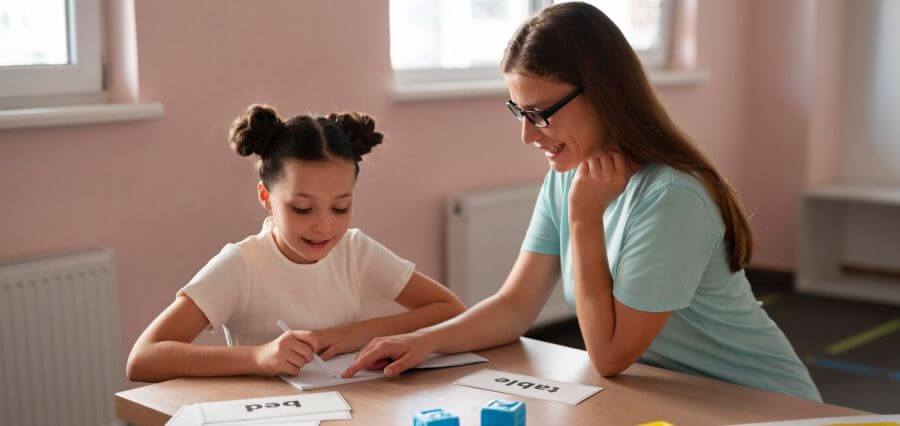Play is a powerful tool for learning, and for children receiving Applied Behavior Analysis (ABA) therapy, it’s an effective way to develop social, cognitive, and motor skills. Structured play activities create an engaging environment where children can practice new behaviors, build confidence, and enhance their understanding of social cues. The use of play in ABA therapy enables children to learn in a natural, enjoyable way, fostering development without the stress of formal instruction.
Programs like Kids Club ABA recognize the unique benefits of play-based learning, incorporating playful activities that make therapy enjoyable and impactful. Here’s how play supports key developmental skills in ABA therapy and why it’s a valuable approach for children working to meet their goals.
- Understanding the Importance of Play in Child Development
Play isn’t just for fun—it’s essential for child development. Through play, children learn to interact with others, explore their creativity, and practice problem-solving. These experiences build foundational skills that support them as they grow.
Key Benefits of Play in Development
- Social Skills: Play often involves interacting with others, teaching children about sharing, turn-taking, and cooperation.
- Motor Skills: Activities like building blocks or hopping on one foot strengthen both fine and gross motor skills.
- Cognitive Growth: Games and puzzles encourage problem-solving and critical thinking, essential components of cognitive development.
In ABA therapy, play activities are structured to help children practice these skills in ways that feel natural and enjoyable.
- Building Social Skills Through Group Play
Group play is an important aspect of ABA therapy, giving children the chance to engage with peers in a structured setting. Social skills like waiting for a turn, sharing toys, and expressing emotions appropriately are integral to positive interactions, and play offers a safe environment to practice these behaviors.
Social Skills Fostered Through Group Play
- Turn-Taking: Waiting for a turn teaches patience and respect for others, skills that are crucial for positive relationships.
- Expressing Feelings: Group play activities provide children with chances to express emotions, learning how to navigate excitement, frustration, and disappointment.
- Observing Social Cues: By playing with others, children learn to pick up on social cues, such as body language and facial expressions, which are vital for effective communication.
Play-based interactions allow children to develop these skills naturally, making social learning an enjoyable experience.
- Enhancing Communication Skills with Play
Communication is a core focus of ABA therapy, and play offers many opportunities to practice verbal and nonverbal communication. Through structured games and activities, children learn to express their needs, understand others, and participate in conversations.
Communication Strategies Used in Play
- Role-Playing Games: Pretend play allows children to practice conversational skills, as they take on different roles and interact with others in various scenarios.
- Asking for Help: Games that require cooperation encourage children to ask for assistance, helping them build self-advocacy skills.
- Learning Names and Greetings: Simple games where children greet each other and learn names promote conversational skills and social interaction.
Play-based communication practice builds confidence, making it easier for children to engage with others in different social situations.
- Reinforcing Positive Behavior with Playful Rewards
ABA therapy frequently uses positive reinforcement to encourage desired behaviors, and play provides natural opportunities for rewards. For example, completing a task or following instructions may result in extra playtime or access to a favorite toy.
Benefits of Using Play as Reinforcement
- Immediate Gratification: Offering playtime as a reward provides immediate gratification, reinforcing positive behaviors quickly and effectively.
- Encouraging Participation: Children are more likely to engage in tasks or activities when they know a fun reward is waiting.
- Building Positive Associations: By associating play with therapy activities, children develop a positive outlook toward learning new skills.
Using play as a form of positive reinforcement makes therapy sessions more enjoyable, encouraging children to participate and engage fully.
- Teaching Problem-Solving Through Games and Puzzles
Problem-solving is an essential life skill, and play activities like puzzles or building challenges help children develop this ability in an approachable way. ABA therapy includes games and tasks that encourage critical thinking, allowing children to practice breaking down problems and finding solutions.
Problem-Solving Skills Practiced Through Play
- Analyzing Challenges: Games that involve strategy, such as puzzles or memory games, teach children to think critically and approach challenges systematically.
- Trial and Error: Play allows children to explore trial-and-error learning, as they try different approaches to see what works.
- Patience and Persistence: Engaging with challenging activities teaches patience and persistence, valuable skills for overcoming obstacles.
Through play, children learn that problem-solving can be fun and rewarding, helping them feel more capable and resilient.
- Building Motor Skills with Active Play
Active play, like running, climbing, or jumping, helps children develop both fine and gross motor skills. ABA therapy incorporates physical activities that allow children to build coordination, balance, and strength, all while having fun.
Types of Motor Skills Developed Through Play
- Gross Motor Skills: Physical games, such as obstacle courses or hopping, build strength, coordination, and balance.
- Fine Motor Skills: Activities like coloring, building blocks, or threading beads improve hand-eye coordination and dexterity.
- Body Awareness: Through active play, children gain awareness of their body in space, an important aspect of physical development.
Active play not only supports motor skills but also helps children release energy and practice self-regulation, making it an essential part of therapy.
- Using Imagination to Explore New Scenarios
Imaginative play offers children the chance to step into different roles, encouraging them to explore perspectives, practice empathy, and navigate various scenarios. In ABA therapy, role-playing and pretend games are used to introduce new social situations, helping children prepare for real-life interactions.
How Imaginative Play Supports Learning
- Role-Playing Real-World Scenarios: Pretending to be in a classroom, store, or family gathering helps children practice responses to different social situations.
- Exploring Emotions: Through pretend play, children can explore emotions like excitement, worry, or joy, building a deeper understanding of feelings.
- Building Creativity: Imaginative play nurtures creativity, helping children think outside the box and enjoy self-expression.
These activities encourage children to embrace different perspectives, fostering empathy and adaptability.
- Creating Structured Play to Practice Routine
Structured play activities help children learn routines and expectations in a fun, engaging way. By practicing specific routines, children develop a sense of security and predictability, making transitions and tasks easier.
Examples of Structured Play Routines
- Morning Routines: Activities that mimic morning routines, like getting ready for school, help children practice following steps.
- Snack Time Practice: Setting up a pretend snack time allows children to practice sitting, sharing, and asking politely.
- Cleanup Games: Structured cleanup games teach children the importance of responsibility, making tidying up a fun part of play.
Structured play helps children feel more prepared for daily routines, reducing anxiety and improving cooperation.
- Supporting Self-Confidence Through Play
Play offers children a chance to achieve goals, build skills, and receive praise, all of which boost self-confidence. ABA therapy uses play to create a supportive space where children can succeed, whether by solving a puzzle or completing a challenging task.
How Play Builds Confidence
- Achieving Small Goals: Completing tasks or mastering new skills in play reinforces a sense of accomplishment.
- Receiving Praise and Encouragement: Positive reinforcement in play helps children feel proud of their achievements, fostering self-esteem.
- Trying New Activities: By introducing new games and activities, therapists help children build resilience and a sense of adventure.
Through play, children learn to celebrate their progress and approach challenges with a positive attitude.
- Involving Parents in Play-Based Therapy
Parents play a key role in reinforcing play-based learning at home. ABA therapy often includes parent training, helping families incorporate play activities that reinforce therapy goals and encourage skill development.
Ways Parents Can Support Play-Based Learning
- Playing Together: Engaging in play with their child helps parents observe skills and reinforce positive behaviors.
- Setting Up Play Dates: Organizing play dates with peers allows children to practice social skills in a familiar setting.
- Encouraging Creativity: By encouraging imaginative play, parents help their child explore different roles and build social understanding.
When parents participate in play-based learning, they create a consistent environment that supports ongoing growth and learning.
Conclusion: The Lasting Impact of Play in ABA Therapy
Play is more than a break from learning; it’s a powerful teaching tool that enhances social, cognitive, and motor skills. Through structured play, ABA therapy provides children with a fun and engaging way to develop essential skills, making learning enjoyable and accessible. Programs like Kids Club ABA use play to foster progress, helping children grow while embracing the joy and creativity of childhood.
As children learn through play, they gain the confidence, resilience, and skills they need to thrive in everyday life. For families, play-based ABA therapy offers a unique opportunity to support their child’s development while celebrating the simple joys of learning through fun.














